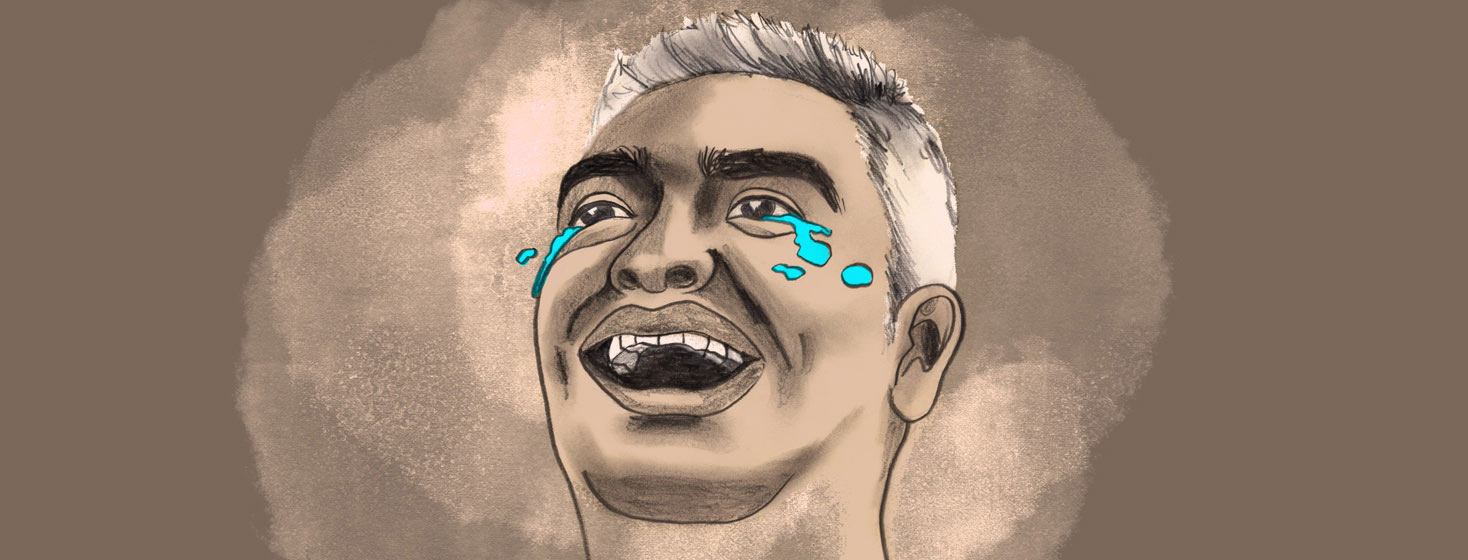Pseudobulbar Affect
Many people with multiple sclerosis (MS) experience pseudobulbar affect (PBA). PBA is a neurological (nerve) condition that causes episodes of uncontrolled laughing or crying. The outbursts do not match your mood or emotions. They may be stronger or last longer than you would expect.1,2
PBA develops because of an underlying neurological condition, such as MS. PBA can cause a large emotional burden and lead to social anxiety. But it can be managed with medicine. Talk to your doctor if you notice signs of PBA.1,2
What causes PBA?
We do not yet know what causes PBA. A part of the brain, called the cerebellum, helps monitor emotional responses. Damage to nerve pathways to the cerebellum may cause a loss of control over emotional expression.1,3
Several neurological conditions can cause this damage. This is why PBA is linked to neurological conditions, including:1
- MS
- Traumatic brain injury
- Amyotrophic lateral sclerosis (ALS)
- Alzheimer’s, Parkinson’s, and Wilson’s diseases
- Stroke
- Brain tumors
- Epilepsy
PBA may be called other names. These include:1,3
- Emotional lability
- Pathological laughing and crying
- Involuntary emotional expression disorder
- Compulsive laughing and weeping
- Emotional incontinence
How common is PBA?
It is hard to estimate the number of people with PBA. This is because PBA can vary greatly in severity. Symptoms also overlap with depression and anxiety. This makes it hard to diagnose PBA. Estimates suggest that between 2 million and 7 million people in the United States have PBA.1,3,4
PBA is common for children and adults with an underlying neurological condition. Between 25 and 50 percent of people with MS have PBA. This is similar for people with ALS or traumatic brain injury.1,3,4
What are symptoms?
The main symptom of PBA is that your affect does not match your mood. Your affect is how you display emotion. Smiling, laughing, and crying are examples of your affect. Your mood refers to your inner feelings, such as sadness or happiness. PBA does not alter your mood.1,2
In PBA, the intensity of your affect does not match the intensity of your mood. Some common examples are:1,2
- Unpredictable laughing or crying
- Laughing or crying that is stronger than the trigger
- Laughing or crying that happens for no reason
- Outbursts of anger or frustration
How is PBA diagnosed?
PBA is hard for doctors to diagnose. Many people with PBA are misdiagnosed with a mood disorder, such as depression. Episodes of crying may appear to be persistent sadness. But the crying episodes in PBA tend to be:1
- More intense than in depression
- Shorter than in depression
- Not linked to persistent internal sadness
It is possible for people with PBA to also have depression. This can happen from other causes or as a result of PBA. In the case of depression, other symptoms may occur, such as sleep disturbance or eating changes.1,4
There are not yet any tests to confirm PBA. Doctors will diagnose PBA based on your:1
- Symptoms
- History of neurological conditions
- Mental health history
- Findings from physical exams
How is it treated?
The goal of PBA treatment is to reduce the frequency and severity of episodes. The most common medicine used to treat PBA is Nuedexta® (dextromethorphan and quinidine sulfate). This is a combination of a cough suppressant and a heart drug. It is the first and only drug specifically approved to treat PBA.1,2
Antidepressants may also help reduce symptoms of PBA. These include Celexa® (citalopram) and Zoloft® (sertraline). All medicines have possible side effects. Talk to your doctor about the risks and benefits of all PBA treatments.1,2
Coping with PBA
PBA can have a large impact on your life. For many people, PBA causes embarrassment and anxiety. This can lead to withdrawal and social isolation. People with PBA have a higher risk of:1
- Depression and anxiety
- Lower quality of life
- Decreased social interactions
Coping with PBA can help reduce the emotional burden. Talk to your doctor about ways to manage episodes of laughing or crying. Your doctor can also suggest ways to take care of your mental health. Some tips for coping with PBA include:1
- Taking slow, deep breaths until the episode goes away
- Thinking about something else during an episode
- Relaxing your face and shoulders to reduce tension
- Changing the position of your body during an episode
- Talking to other people about your condition
- Talking to a therapist or mental health professional

Join the conversation